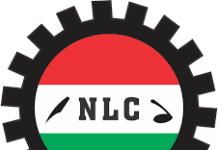Aleshinloye: Technology Will Boost Nigeria’s Fashion Industry
CHIGOZIE AMADI
Co-founder and CEO, Dezigntees, Gbenga Aleshinloye, speaks about how the firm is leveraging technology to revolutionise Nigeria’s fashion industry, the challenges in achieving the initiative and the way forward. Emma Okonji presents the excerpts:
Can you tell us the inspiration behind Dezigntees.ng and how it addresses a gap in the fashion industry?
Dezigntees.ng was born from a deep-rooted passion to bridge the gap in accessible, high-quality merchandise customization across Africa. The inspiration stemmed from seeing how limited options were for creatives and brands to express their vision on merchandise without high costs or logistical burdens. We saw an opportunity to revolutionise this space by creating a platform that combines ease of design with robust production capabilities, allowing anyone, from individuals to established brands, to bring their creative ideas to life seamlessly. Great ideas deserve more than just conceptualisation; they deserve to be shared with the world.
How is Dezigntees.ng revolutionising fashion in Nigeria and Africa, particularly through the use of technology?
At Dezigntees.ng, we’ve built an e-commerce platform that goes beyond simple retail. With our free design templates and marketplace, users can customize merchandise or upload their designs, allowing creatives to monetize their art. For many artists in Africa, breaking into the market comes with obstacles like production costs and supply chain challenges. Our platform removes these barriers, handling everything from printing to delivery. In an industry where Statista estimates the global custom printing market to reach $10 billion by 2025, we are positioning Africa as a contributor and innovator, leveraging technology to make a mark on the global stage.
Could you walk us through how your online platform works, especially for customers new to digital fashion design?
Our platform was designed with simplicity and user experience in mind. Customers follow four straightforward steps: they choose their merchandise, customize it with text, images, or pre-made designs, select their preferences (size, color, quantity), and check out. Within 72 hours, their items are delivered. Our goal was to create a streamlined, inclusive process that anyone—whether tech-savvy or not—could navigate. This ease of use is core to our mission of democratising design for everyone.
What role does customization play in your business model, and how does technology facilitate this?
Customisation is at the heart of our business model. We value self-expression, and our technology empowers users to create unique, personal designs across various merchandise. From a technological perspective, we’ve built a robust design canvas on our site where users can upload images, add text, and change colors in real time, creating anything from T-shirts to mugs. As we look to the future, AI will play a transformative role. We are developing AI integration that will allow users to generate art based on keywords, an advancement that will open new creative possibilities and set us apart in a rapidly evolving digital market.
How has the response been from Nigerian and African consumers, especially regarding the idea of self-designed clothing?
The response has been overwhelmingly positive. Our customers, whether in Nigeria, across Africa, or in the diaspora, appreciate the authenticity and connection that comes with creating something uniquely theirs. Self-designed merchandise is more than just a fashion statement; it’s a representation of individuality and culture. A recent McKinsey report highlights that personalization is not only a trend but a key growth driver in e-commerce, and our platform is directly aligned with this. We are not just creating products; we are fostering a movement of self-expression across the continent and beyond.
What challenges have you faced in combining technology with fashion, and how have you overcome them?
Starting out, our main challenges were technological—finding a developer who understood our vision and building an infrastructure capable of handling both front-end and back-end requirements. Transitioning customers from social media to our website was also challenging, as many were accustomed to informal channels. We tackled these issues by investing in top talent and relentlessly optimizing our site for speed, usability, and engagement. Today, thanks to these efforts, we enjoy strong repeat customer rates, which is a testament to the experience we’ve created.
In your opinion, what sets Dezigntees.ng apart from other clothing or design platforms currently available?
Our distinction lies in the depth of our design expertise, our commitment to quality, and our end-to-end solution for artists. We aren’t just a marketplace; we’re a platform where creativity meets commerce, backed by a fully operational production facility that ensures quality control and swift delivery. This operational advantage allows us to fulfill orders quickly and maintain high standards—an essential factor for consumer trust. Additionally, our commitment to innovation in AI and customization means we’re not just keeping up with trends; we’re setting them.
What future trends do you see emerging in tech-driven fashion, and how does Dezigntees.ng plan to stay ahead?
The future of fashion is undoubtedly tech-driven, and the integration of AI is a major frontier. From predictive design to on-demand customization, AI will reshape consumer experiences. At Dezigntees.ng, we are proactively investing in these technologies to remain ahead. Our AI-driven design tool is just the beginning. We envision a platform where users can input keywords or themes, and our AI will generate unique artwork that can be instantly applied to merchandise. As customization becomes more mainstream, we aim to set the standard by leading with innovation, creativity, and efficiency.
How is Dezigntees.ng impacting local artists and creatives, and what opportunities does it create for them?
Dezigntees.ng provides a platform where African artists can reach audiences globally, something that has historically been a significant challenge. Artists can upload their designs to our marketplace, monetize them, and build their brand—all without any upfront costs. This model empowers creatives by offering them a zero-capital way to earn. We see this as a way to not only support the creative industry in Africa but to elevate it. With plans to expand into North America and Europe, we’re opening doors for African artists to make a global impact.
What’s next for Dezigntees.ng in terms of growth and innovation? Any expansion plans beyond Nigeria?
Our vision extends far beyond Nigeria. We recently launched Dezigntees in Canada (dezigntees.co/ca), and we’re preparing to open a flagship store there in early 2025. The North American and UK markets are next, as we see substantial demand from diaspora communities seeking personalized African-inspired merchandise. Globally, the customized merchandise market is expected to grow at a compound annual growth rate of 9.7% through 2030. The global creative economy is valued at over $4 trillion, according to the United Nations Conference on Trade and Development’s 2020 report on the Creative Economy and COVID-19. By entering these markets, we’re positioning Dezigntees.ng not only as a leader in Africa but as a global brand that champions African creativity and innovation.
























